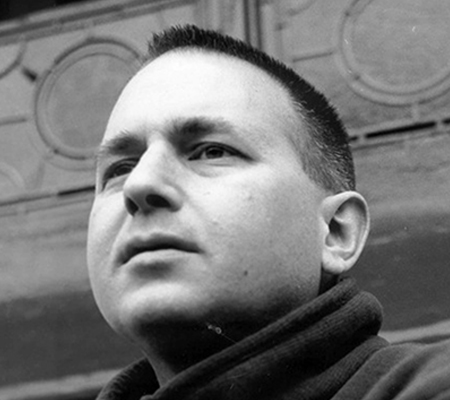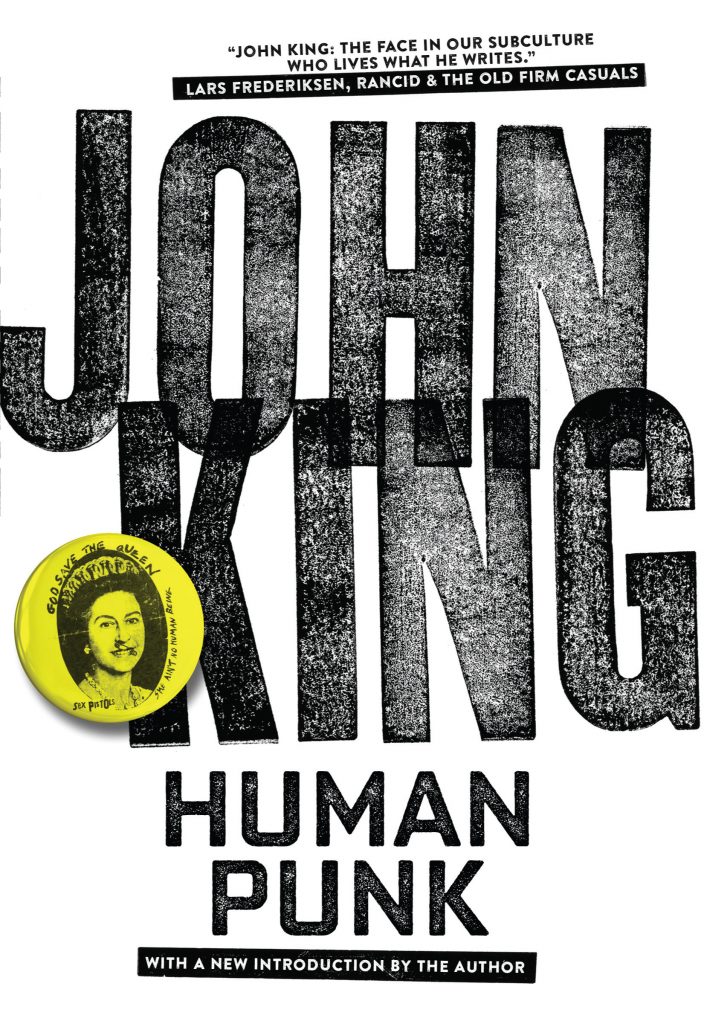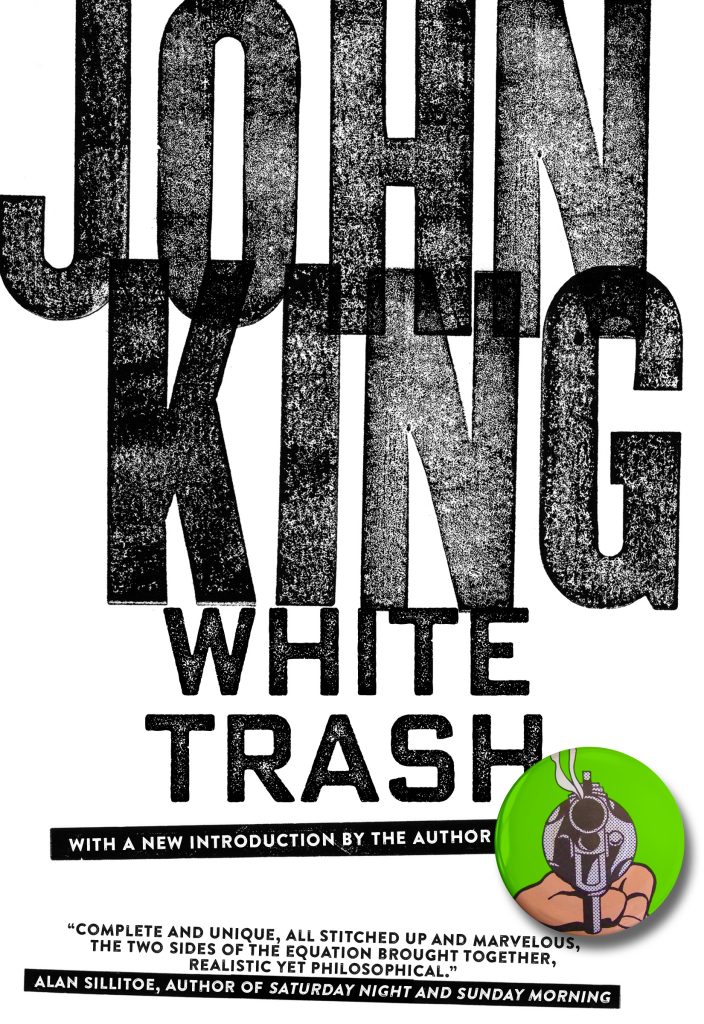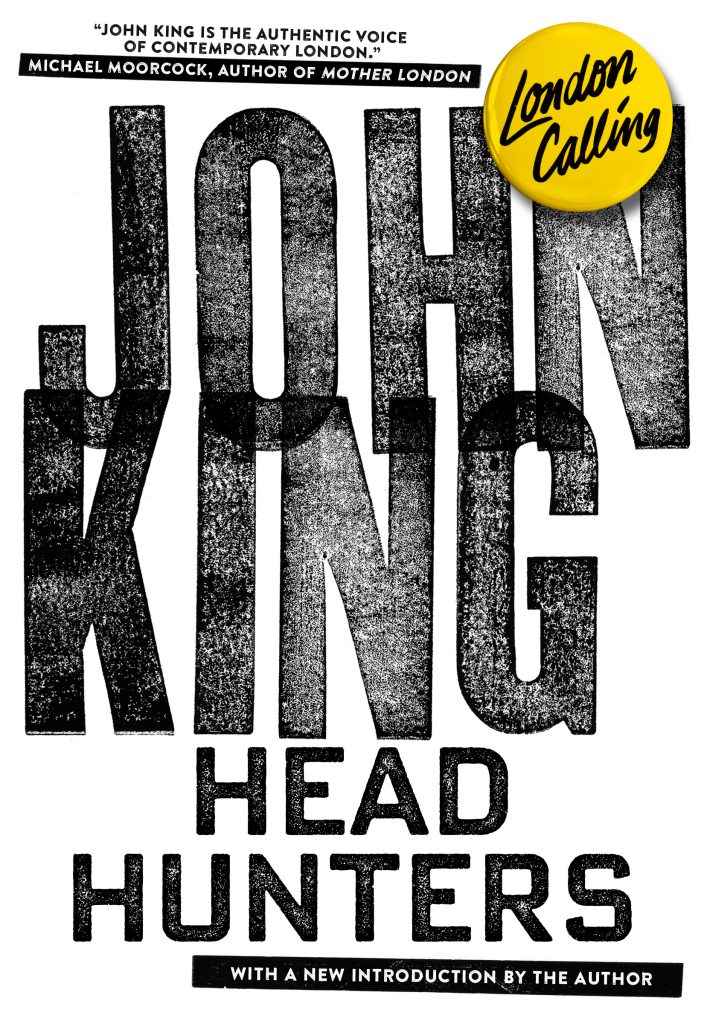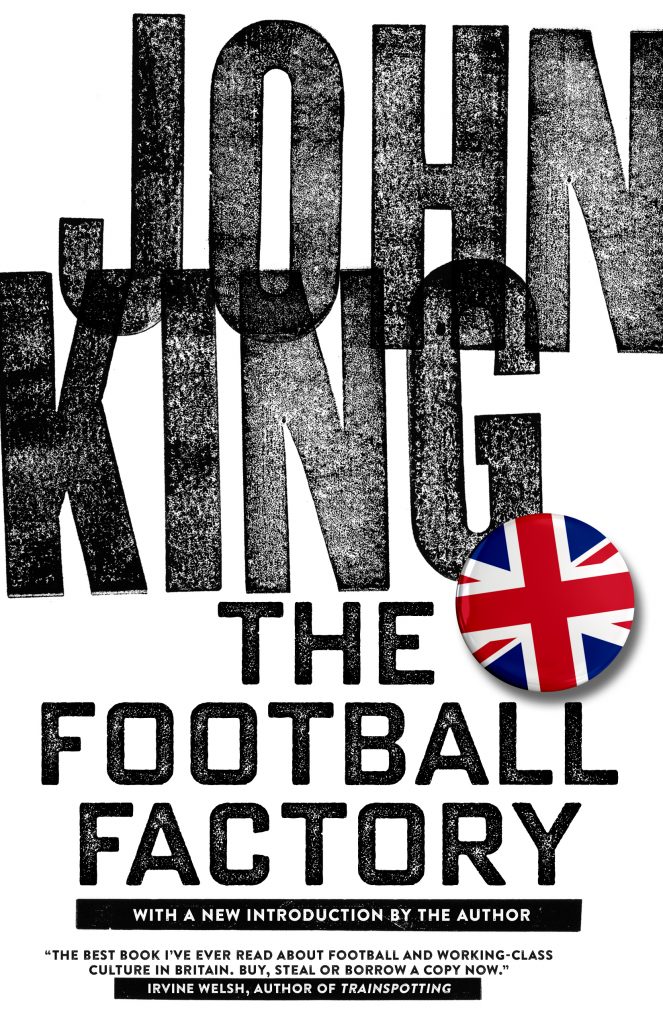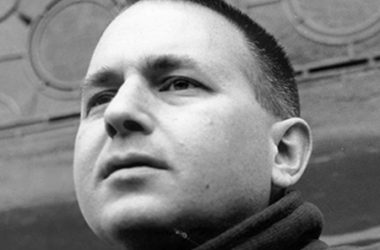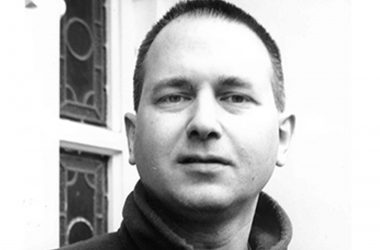The Common Breath
May 2020
Interview conducted during UK lockdown, May 2020. You can find out more about John’s work and the London Classics publications via this link: London Books
TCB: One of the characteristic features of your writing
is its commitment to the representation of voice; to the way in which
people actually speak in everyday life. Is this something you consider
crucial to your work, and is it a difficult process to formulate prose
that you feel is a true expression of how particular characters would
speak?
JK: Yes, voice is very important, and obviously varies
between characters, but those you mention from everyday life are easy
enough to write as the language is around me and part of my life. As
this is fiction there is room for some flamboyance, a celebration of
speech, and it is important to keep that voice going when it comes to a
person’s inner thoughts and the prose generally. Other characters I have
to approach differently, as I won’t be so familiar with their language,
and know I can never get it right. The rhythms of a novel are as
crucial to me as voice, and these do tend to merge.
I like to vary the way in which I write, find a style that suits the
subject matter, experiment and play with different approaches. Two of my
novels include no formal dialogue – The Prison House and Slaughterhouse Prayer – which gives them another sort of intensity. I like writing this way more and more. And then there is is The Liberal Politics Of Adolf Hitler
which was a lot of fun as I was free to bend and distort language
however I wanted, which relates nicely to one of the novel’s themes. A
satire set fifty years in the future, baby-talk meets doublespeak in the
days of the USE and GB45.
TCB: I remember seeing you discuss your disappointment that many people ‘missed the point’ of The Football Factory. What are the misconceptions that surround the book? Why do you think this misrepresentation occurred?
JK: I think the majority of readers understand The Football Factory,
so I was probably talking more about those with the power to review,
and how their generalisations are accepted by passers-by who haven’t
read the book. Early on it was attacked by reviewers who didn’t like the
subject matter or the people I was writing about, never mind the
novel’s attacks on the media and political classes – characters very
much like themselves. One misconception is that The Football Factory
is a ‘football book’, while another bigger misconception is that it is
‘just about football violence’. But in truth this has been a small part
of the response, which from the start was very positive.
TCB: Continuing on The Football Factory, one of my favourite parts in the book is the chapter Sweet Jesus,
about the lady Doreen who works in the launderette. She wonders if she
has developed an unpleasant odour from working there for so long, and
asks a wee boy (that she thinks will be truthful) to tell her what she
smells like. He says she smells clean. It’s quite an odd and beautiful
passage within the novel. Was this character or this chapter based on
anyone specific that you knew? Was it important to you to represent a
way of life other than the football culture shown in the book?
JK:Sweet Jesus isn’t based on an individual,
but I had the launderette I was using at the time in my head when I
wrote it, the fact the lady running it was usually on her own with time
to think, and I created a character and placed her in that setting of
spinning machines and thoughts. There is that fantastic smell of washed
clothes a customer maybe notices more, all the dirt and negativity
removed – Good versus Evil – the burn on your hands when you take your
shirts out of the dryer. And then there is the magic of a service wash.
There is something special about a launderette. It is the same as going
to the barber. I love washing dishes. Frothing up the bubbles. Scrubbing
plates. I am a big one for tidying up. The sweet smell of hoovered
carpets. And toothpaste.
Those smaller stories within the novel are as important to the book as
its core, which is Bill Farrell’s story. Tommy Johnson is the star, but
Bill is the hero. His experiences and values are the foundations for
everything. It was fun writing about football’s terrace culture – the
drinking, pubs, ends, music, style, fanzines, travel, players, games,
that sheer Jack The Lad excitement of it all – but it is always in the
context of the wider world, part of the bigger culture. Football as a
microcosm of society, so The Football Factory deals with the search for unity and meaning, enemy creation, the way we end up fighting amongst ourselves.
TCB: I read an interview with you from 2006 where you said, in reference to the film of The Football Factory:
“I’ve had offers for options, but hate it when authors sign away
their rights for a payday, then moan about the film being rubbish. If
you believe in your ideas, you need to fight your corner for as long as
you can. I did that last time, and I’ll do it again. It’s important for
an author to make sure those they are involved with respect to their
work.”
This is really interesting – could I ask you to elaborate on it? What
was your involvement in the creation of the film, and how did you go
about fighting your corner?
JK: If I was just writing straight stories without the
deeper themes or any real belief in them then maybe I would be
different, but the things I write about are important to me and so if a
book is adapted I would want it to be done in the right way. I believe
in novels, that fiction is important, but there are a lot of toy-town
revolutionaries in the so-called arts who spend their lives slagging off
The System then first chance they get take the money.
I was involved in the film for a good while and it is important to have
your say and get to a position of trust, as there will always be a point
where you have to let go. Given the subject matter, I was wary, but
things worked out well as I knew Nick Love before the film was made,
back when we were trying to develop Headhunters, so that was quite easy in the end and it was largely my call that we got him to direct.
TCB: A writer I’ve seen you cite many times before is
George Orwell. Why is Orwell so important to you and what is it that
makes his work so significant?
JK: He was the first political author I read, and I
liked the fact he wasn’t bogged down in dogma, was openly patriotic and
socialist, could be critical or both, and wrote about a divide that even
as a teenager I saw as a contradiction. His essays are as important as
his fiction and remain totally relevant. Orwell came recommended by
David Bowie whose Diamond Dogs album I bought when it was released and which I love to this day, and which is based around Nineteen Eighty-Four.
TCB: I think what you’ve done with London Classics is
brilliant – for anyone unfamiliar with it, could you explain how it came
about, what the thinking behind this was, and what work has been
published via the series?
JK: Thank you! The idea came out of a couple of novels
by Gerald Kersh and James Curtis, and a love of London that I share with
the author Martin Knight. We set up London Books and created the London
Classics imprint in order to bring what we saw as a dismissed tradition
back into print, a series of novels rooted in the working people of the
city – dynamic fiction written by free-thinking mavericks.
We decided to do it in style, to publish in hardback and include an
in-depth introduction by a contemporary author at the front of each
book. We want to reflect the energy of the prose, so we reset the text
and always aim for vibrant covers. We called the list London Classics to
challenge the official canon, to show respect to authors who went
against the grain and in many cases ended up marginalised and forgotten.
To date we have published three novels each by Gerald Kersh, James
Curtis and Simon Blumenfeld, plus books by Alan Sillitoe, John
Sommerfield, Arthur La Bern and Robert Westerby. It is a labour of love,
but incredibly rewarding for a couple of book-lovers. We have learnt a
lot about the authors’ lives and one of the big bonuses has been finding
and meeting the sons and daughters and in one case the nephew of these
people. Next up is Brighton Belle by Arthur La Bern, which will include a brilliant introduction by Paul Willetts.
TCB: As someone who seems steeped in London literary
history and culture then, I have to ask if you are a fan of Patrick
Hamilton? I love his work and I’m intrigued as to whether you might too.
Who are your favourite writers to come out of the London literary
scene? And what do you think makes a great London writer, is there
something distinctive about that city and the literature it produces?
JK: Yes, I like Hamilton’s writing, especially his Twenty Thousand Streets Under The Sky
trilogy. He was a ‘complicated’ man, shall we say, going on what I have
read about him, but a great writer. London is such a big and diverse
city, and it is home to the literary establishment which exists in its
own bubble in many ways, so this is a difficult question. However, one
of the great London novels has to be May Day by John Sommerfield,
which is on the London Classics list. That book has it all and could
almost have shared a title with the Hamilton trilogy.
For me, the writing has to be rooted in the ordinary people of the city,
their dreams and memories, that everyday London with all its quirks and
madness. Authors such as Peter Ackroyd, Iain Sinclair and JG Ballard
have obviously written great books about London, and we can go back to
Charles Dickens and Arthur Morrison and beyond, but I have always loved
the small-press world as well, and rate the writers I publish in
‘Verbal’, people such as Koushik Banerjea, Cathi Unsworth, Martin
Knight, Joe England, Pete Haynes, Michael Keenaghan, Joseph Ridgwell,
Ben Richards and so on.
London fiction is maybe distinctive in its portrayal of local
differences against the sheer size of the place, the way language and
especially slang changes so fast, its hustle and bustle and incredible
vibrancy, the endless contradictions, the presence of wealth and
government next to poverty. It is also worth considering where London
begins and ends. Is it a postcode or something deeper, the history of a
location or the history and culture of the people?
TCB: In another interview (from 2006), I read the following statement from you:
“I’m interested in people’s love of music, its development, the
social element. Very few books capture this, as they’re generally based
on famous figures and/or written by people in the business. The human
element is too often missing.”
And this was with regard to your novel Human Punk. Can I ask, how
has music influenced your writing? Is it important to you for your work
to be fusing literary language with your musical sensibility?
JK: Music is a massive part of people’s lives, it
doesn’t matter what generation you come from or what your tastes are, so
rather than it being background noise or a series of references I
wanted to make it the soul of Human Punk. When punk started it
was totally different to the other music we were hearing, and the fact
it was (for us) about the lyrics took it to another level. The songs
said something about our lives and in Human Punk I wanted to show how the music gets under the main character’s skin and shapes his life. Skinheads takes the idea on and weaves in and out of Human Punk, part of a loose trilogy with the repetitive beat of White Trash.
In terms of my writing, music has been incredibly important. For many of
my generation, it was a bigger influence than literature which, apart
from the more classless and exciting American writers, too often felt
stuffy and elitist. Punk was our literature. The deeper and more
long-lasting influence of music on my writing is in its rhythms, the
sound and flow of my words and sentences. That is what makes writing and
editing such a great experience. Popular music has always been more
experimental and open-minded, and there are a small number of writers
around today prepared to take chances thanks to Bowie and The Clash, and
more recently the likes of Tricky and DJ Shadow.
TCB: I think it’s fair to say that your most recent novel, Slaughterhouse Prayer,
was a book about veganism and, quite unusually, a book with a very
definite and specific cause. What motivated you to write a novel that
carried such a clear, powerful message?
JK: I have been vegetarian and later vegan since the
early 1980s and the book was written to change minds. Simple as that.
But of course it is a novel rather than a polemic, and it took a long
time to get it right as you can’t keep repeating ‘meat is murder’
endlessly. The book evolved as I was writing it, as all my books do, and
Slaughterhouse Prayer represents a peak for me in terms of its
contents and the way it is written. It connects to everything I have
written before and if I died tomorrow I could at least say I got to
where I wanted to go as a writer. Everything I wrote before was building
up to Slaughterhouse Prayer.
Even now, in the middle of a pandemic that came out of the cruelty and
perversion of our species, the cause is barely touched on, and it never
ceases to amaze me how the supposedly moral and politically pure will
stand there lecturing us while dressed in leather jackets and shoes,
with meat and dairy rotting in their bellies, ignoring the brutality
that surrounds us, the horrors of ‘humane slaughter’. They have their
stances on every issue going, talk and write endlessly, but can’t do the
thing that would actually make a difference to the world.
If you look at White Trash, The Prison House and Slaughterhouse Prayer, they connect in a clear line as novels that go to the margins – White Trash is a defence of the NHS and a smeared section of society; The Prison House is set in a foreign prison among the judged and condemned of society; while Slaughterhouse Prayer goes beyond the margins to those not deemed worthy of a place in that society.
TCB: In a piece about the EU referendum (and about your trilogy of novels Football Factory, Headhunters, and England Away)
that you wrote for Penguin in 2016, you said that if the protagonist
Tommy Johnson was still alive today, he’d be an “unheard voice and a man
who remains ignored”. What does this say about our society? Why have we
not progressed in a way that would affect someone like Tommy?
JK: That article was written a month before the
referendum and for once Tommy Johnson’s voice was heard, in the vote to
leave the EU, but over the next three and half years the establishment
did everything it could to get that decision overturned. All the old
prejudices were pumped out, the same stereotypes which he rejects in The Football Factory and England Away,
and which I reject in other novels also – namely, we are thick and
uneducated (didn’t go to university, as if that is the only place you
get an education), we are racists and bigots, and the older generations
are nostalgic, selfish and shouldn’t be allowed to vote. It is all there
in White Trash.
What this says about society is that the same splits and hatreds were
always there behind the masks. But we knew that. One of the reasons we
haven’t progressed is down to party politics, another is class and how
even the party meant to represent working people is infested with those
who have no understanding of the masses, and in reality often hold the
people in contempt. This goes back hundreds of years, back to the Norman
invasion, probably beyond. I firmly believe the majority of people are
more interested in individual issues than party dogma, and so due to his
background and mix of beliefs there is no-one representing Tommy
Johnson.
TCB: What does the future look like for you? Do you have new work in development at the moment?
JK: Well, I am looking at the future during the
coronavirus lockdown, wondering like everyone else what is going to
happen. At the moment the media spotlight is on the NHS and the
realities of sickness and old age, something the majority of us don’t
see until we have a loved one seriously ill or dying, and it is a harsh
dose of realism that will hopefully see proper investment in the NHS
going forward. It has also shown who the important workers are in
society, how badly so many are treated in terms of wages and conditions
and now in the threat of infection, and wouldn’t it be brilliant if that
changed, that the snobbery and unfairness ended? I have never worked
out why those who work so hard are paid so badly. Part of me sees things
changing for the better, part of me despairs.
In terms of writing, I am finishing a novella – The Beasts Of Brussels
– which will be part of a collection of three that also includes
novellas by Alan Warner and Irvine Welsh, due out in November, and I
have a new book London Country that I hope will be finished for next year. London Books is publishing Stewart Home’s She’s My Witch
in July and the next issue of my fiction publication ‘Verbal’ is an
Alan Sillitoe special, which will be released later this year. I’m also
hoping a TV series based on Slaughterhouse Prayer and maybe White Trash will come off.
TCB: Our closing question is always a request for
recommendations for the benefit of our readers – can you tell us some of
your personal favourite books (fiction or non-fiction)?
JK: There’s so many to choose from, but here’s three… First off, a novel from an American author I only recently discovered – Stripper Lessons by John O’Brien. He is best known for Leaving Las Vegas, which I again missed. Stripper Lessons
is an intense, cleverly written story based on a man’s loneliness and
obsession. O’Brien committed suicide at the age of thirty-three and the
book was published after his death, with his sister Erin polishing off
the manuscript. Everything about this novel is moving. John O’Brien was a
great talent.
Next, The Komboloi And Its History… by Aris Evangelinos, who at
the time the book was published ran a komboloi museum in Athens, and
maybe this was printed to sell there. I found it in a secondhand
bookshop in France years ago, and it is a gentle tale of the author’s
love for what many call ‘worry beads’, a relative of the rosary. I
particularly like the journeys he makes into hidden worlds as he traces
the komboloi’s history, the story behind the beads I clicked trance-like
when I was stuck in Greece in the early 1980s.
Finally, Fiddle Me Free by Herbert Sutherland. For some reason I
bought this at a school jumble sale when I was nine or ten years old.
God knows why, but it is the funniest book I have ever read. Big Oley
Nordvaago shares a tent with Taff and Alfie in a British army camp in
Persia during the Second World War, and the story is based around the
theft of a tin. It is brilliant, but you will have to take my word for
that, as it’s almost impossible to find. ●
You can follow London Books on Twitter via: @London_BooksMore info on the novel ‘Slaughterhouse Prayer’ can be found by clicking hereMore info on the ‘Verbal’ publication can be found by clicking hereAnd you can access the facebook account for John’s work right here

